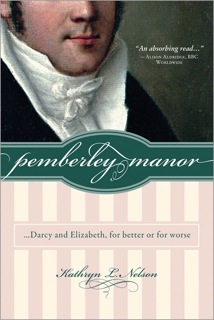Marsha Altman born in New Jersey. She has lived in Jerusalem, Israel and currently resides in New York City. She has a B.A. in History from Brown University and a MFA in Creative Writing from The City College of New York. She has just released her new novel, a new sequel of Pride and Prejudice,The Ballad of Gregoire Darcy
GIVEAWAY Comment and leave your e-mail address and, if you live in the US or Canada , you'll get a chance to win this new novel. Giveaway ends on Wednesday, June 1st.
So, Marsha, after The Darcys and the Bingleys, Mr Darcy’s Great Escape and The Plight of the Darcy Brothers, your fourth sequel of Pride and Prejudice, The Ballad of Gregoire Darcy, has just been released. I am astonished by the great deal and variety of sequels this masterpiece has inspired. What were your personal, special reasons for wanting to give Jane Austen’s tale a saga-like series of sequels?
I came into this very hesitantly, just starting out with the short story “A Bit of Advice” which became the first half of The Darcys and the Bingleys. I posted it on Fanfiction.net and it got good reviews, so I decided to keep going until I ran out of ideas, and it took me 10 books to run out of ideas. In actuality, I burned out pretty hard in the middle of the 10th, but I had the ending so I just had to keep going.
Can you tell us briefly who Gregoire, the hero of your new book, is in the Darcy family and what kind of adventures have you got him involved in ? I’m very interested in doing stories about the Other, people who were not part of Regency high society – not just because of social class, but because of religion or nationality or something to that affect. There’s a lot of them in my books, and because Darcy is a bit of a homebody (he takes less journeys than everyone else unless he’s rescuing someone) I have to throw them in his face to get a reaction.
Grégoire (it’s spoiled on the back of the book) is Darcy’s half-brother, the result of an affair between Darcy’s father and his mother’s lady-maid, and was born a few months after Georgiana. His existence was a secret until The Plight of the Darcy Brothers. Not only is he French and a bastard but he’s also a monk, so there’s a huge gulf in the worldviews of the two brothers. Spirituality is very rarely addressed in Austen – both of the religious characters in Pride and Prejudice (Mr. Collins and Mary Bennet) are negative, though that doesn’t stand as a statement for how Austen felt about religion as a whole, just how people use it to define themselves. I gave Darcy a kind of standard Anglican aristocracy understanding of religion, meaning he believes in trying to be humble, acting in an upstanding manner, doing works of charity, and trying not to fall asleep during the pastor’s sermon on Sundays – which obviously works for him and is not a bad way to be. Grégoire, obviously, has given the whole of his life to religion, and wants nothing more than to pray and do menial chores inside monastery walls and not be part of secular society at all.
Grégoire is also interesting because he stands at the end of monastic culture in its medieval remnants. Two of his monasteries – in France and then Austria – have already been dissolved by the French Revolution and Napoleon’s policies, and his monastery in Spain is one of those that survived the dissolutions in Spain during the rule of Napoleon’s brother. Even in Catholic countries like France and Ireland his way of life is either on its way out or gone; it’s obvious he has to find another way to live, which is very hard on him, and the way he gets through it is with the help of his larger family but especially his brother Darcy and his sister Georgiana.
I want to say these ideas of deciding how to include spirituality in your life are universal, and they are really are – I’m an Orthodox Jew writing about a Benedictine monk and his Protestant brother in 19th-century England. It’s not about being preachy or having a message, but about people decigin for themselves how they want to live their lives.
What is more engaging and entertaining between to make Jane Austen's characters live on in your stories or creating new ones who can have their own space and act shoulder to shoulder with the already known ones?
Can I say both? It really only works with both. Half of the fun is the reaction betweens people who are different – which was the driving plotline between Pride and Prejudice, two people who were great for each other but disagreed on many things, so much so that it drove them apart initially. If people come to care about the new characters nearly as much or as much as the Pride and Prejudice characters, I feel as if I’ve done my job as a storyteller, which is to make the characters engaging enough to care about.
If you could get lost in one of Jane Austen's novels, which one would you choose? Why? Whose place would you like to take?
Uh ... none of them. I have this thing for flushing toilets and medicine that actually works. It’s a deal-breaker.
Would you write a sequel for any other of Jane Austen’s novels?
Short answer: No. Long answer: Not really.
Which is the minor character or the evil character in JA novel with whom you would like to write a spin-off?
I started this story off thinking maybe it would spin into a plotline just about Bingley, but really, Bingley needs to play off Darcy or Jane. He needs a companion – he’s briefly on a trip in this novel, but he has his cousin-in-law Brian Maddox along with him. And I decided to give Caroline Bingley some time and married her off to Dr. Maddox, but I would focus on Dr. Maddox rather than her, because he’s a doctor and you can do more with him. There’s a problem in the book’s society that you really can’t do much with women aside from marry them off unless you do something really radical that gets them kicked out of society. In later books I do some weird stuff with Georgiana Bingley, Bingley and Jane’s daughter, who skirts convention as much as she possibly can, but she’s my character, and I don’t think Austen would write about a character like her.
As for the many adaptations of Jane Austen’s novels we’ve seen so far, is there one you especially love? Why?
I can’t answer that question fairly because I know too many of the authors online or personally. I will give a shout-out to Linda Berdoll. Mr. Darcy Takes a Wife was the first published story I read, and I read it about 10 times. And I thought Ann Herendeen’s Pride/Prejudice: A Novel of Mr. Darcy, Elizabeth Bennet, and Their Forbidden Lovers took the book in a different direction and deserves some serious respect for that.
With all the movies / series based on Jane Austen’s work don’t we risk many readers 1. Neglect to go back to the originals and to read them 2. Get a wrong opinion of Jane Austen’s aim influenced by the usually romanticized interpretation of her stories?
No. I mean, no one’s shoving the spin-off books down people’s throats. The original is always there, being assigned in class, being produced in yet another edition with pictures or large print or scholar’s notes. The original is powerful enough that I feel it’s un-taintable; you can read 10 or 20 spin-offs, but if you go back to the original, you’re going to get the original, which is a great classic of world literature. Some people try to imitate Austen’s style, which is no more less respectful than what I do, but I never try to do that, because I know I just can’t. I use the setting and the characters but I don’t try to write like her. I know I’m going to fail.
When and how did you become an Austenite?
I read Pride and Prejudice in 12th grade, and saw the miniseries a couple times, but when the 2005 movie came out, it found me at the right time in my life to be receptive to it and it somehow took over my writing life. So I went back and read the book, and re-watched the miniseries, and read a lot of fan fiction, and started doing research on Austen in general. 2005. I should give that year. It’s a good year to give.
What is Jane’s most important life lesson to you?
If you’re going to fall hopelessly in love with a guy, it helps if he’s really rich. I know that’s a very cynical reading of Pride and Prejudice, but there’s some truth to it. Colonel Fitzwilliam is a nice enough guy but passes on Elizabeth because he doesn’t have a good salary and she has almost no dowry. Behind the romance there are all of these financial considerations; in that sense it’s very grounded.
What is so fascinating in her world to so many new admirers living in the 21st century?
The story is a timeless romance. It always had admirers, but it went through waves of admiration based on how well and widely it was published. Things go through periods of being popular, not just in the celebrity sense but also in the literary sense, as things go in and out of fashion, and right now Austen is very fashionable as a writer.
What are you working on at present?
I’m writing some short stories that coincide with the events of The Ballad of Grégoire Darcy that I’m hoping to release as a free (if short) e-Book to give something to my readers. I also have to start editing book 5 to submit for publication. I’m also editing a sci-fi book that I’m considering self-publishing online, and I’m waiting to see if a business book proposal for the Chinese-language market sells or not. If it does, then I’ll be writing a book on Jewish business ethics in the Talmud for Chinese publishers. So wish me luck on all that.
Of course, good luck on all your future plans and projects, Marsha. Thanks for taking the time to answer all my questions.
Now it's your turn, readers of My Jane Austen Book Club. Ready for the giveaway? Marsha and I would love to hear from you!





























